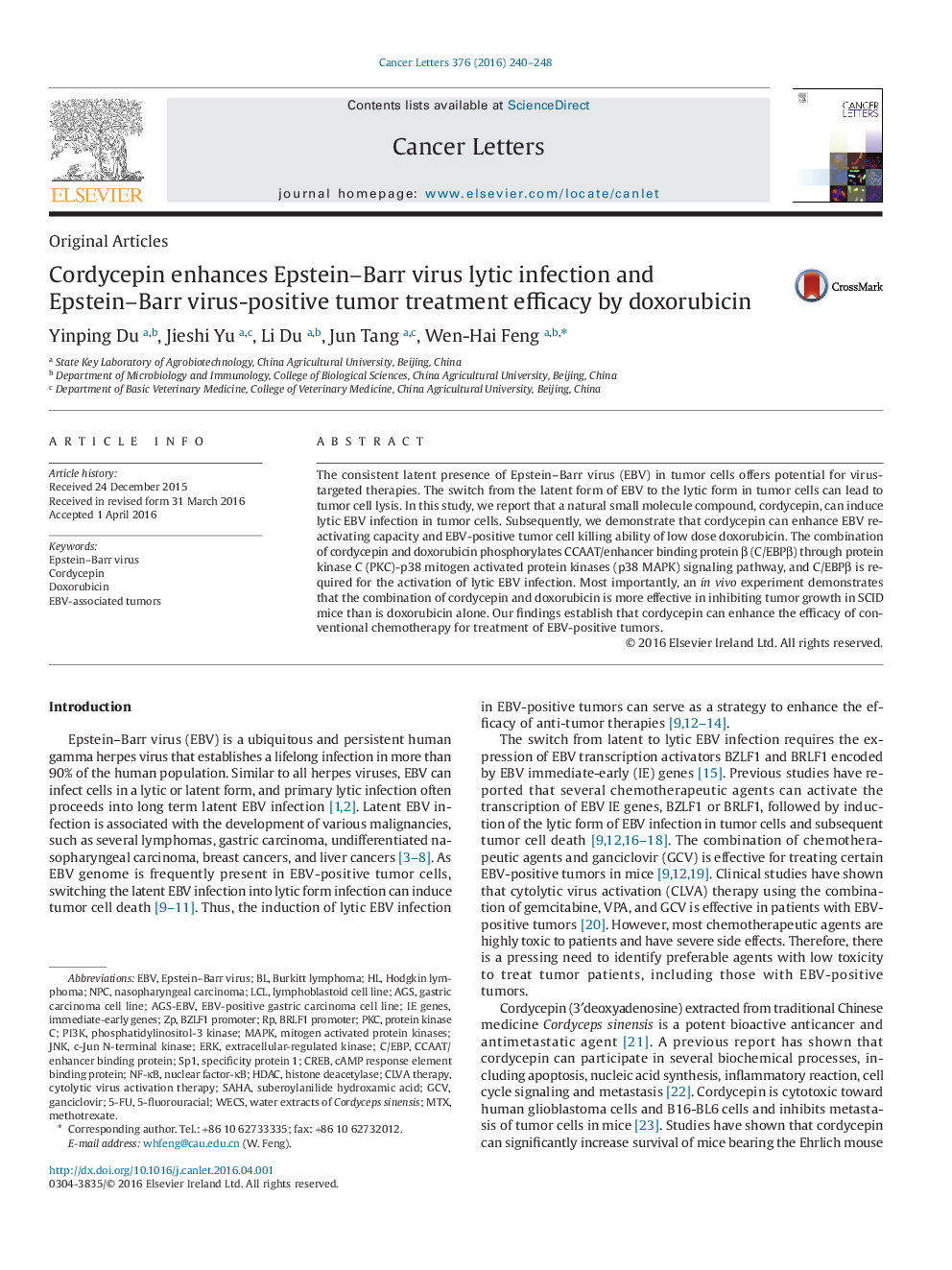| Article ID | Journal | Published Year | Pages | File Type |
|---|---|---|---|---|
| 2112279 | Cancer Letters | 2016 | 9 Pages |
•Induction of Epstein–Barr virus lytic infection is a potential therapeutic strategy for treating EBV positive tumors.•Cordycepin can induce EBV lytic infection cycle in a dose dependent manner.•Cordycepin and doxorubicin synergistically induce EBV lytic infection via PKC-p38 MAPK-C/EBPβ pathway.•Cordycepin can obviously enhance the EBV positive tumor treatment efficacy by low dose doxorubicin.
The consistent latent presence of Epstein–Barr virus (EBV) in tumor cells offers potential for virus-targeted therapies. The switch from the latent form of EBV to the lytic form in tumor cells can lead to tumor cell lysis. In this study, we report that a natural small molecule compound, cordycepin, can induce lytic EBV infection in tumor cells. Subsequently, we demonstrate that cordycepin can enhance EBV reactivating capacity and EBV-positive tumor cell killing ability of low dose doxorubicin. The combination of cordycepin and doxorubicin phosphorylates CCAAT/enhancer binding protein β (C/EBPβ) through protein kinase C (PKC)-p38 mitogen activated protein kinases (p38 MAPK) signaling pathway, and C/EBPβ is required for the activation of lytic EBV infection. Most importantly, an in vivo experiment demonstrates that the combination of cordycepin and doxorubicin is more effective in inhibiting tumor growth in SCID mice than is doxorubicin alone. Our findings establish that cordycepin can enhance the efficacy of conventional chemotherapy for treatment of EBV-positive tumors.
